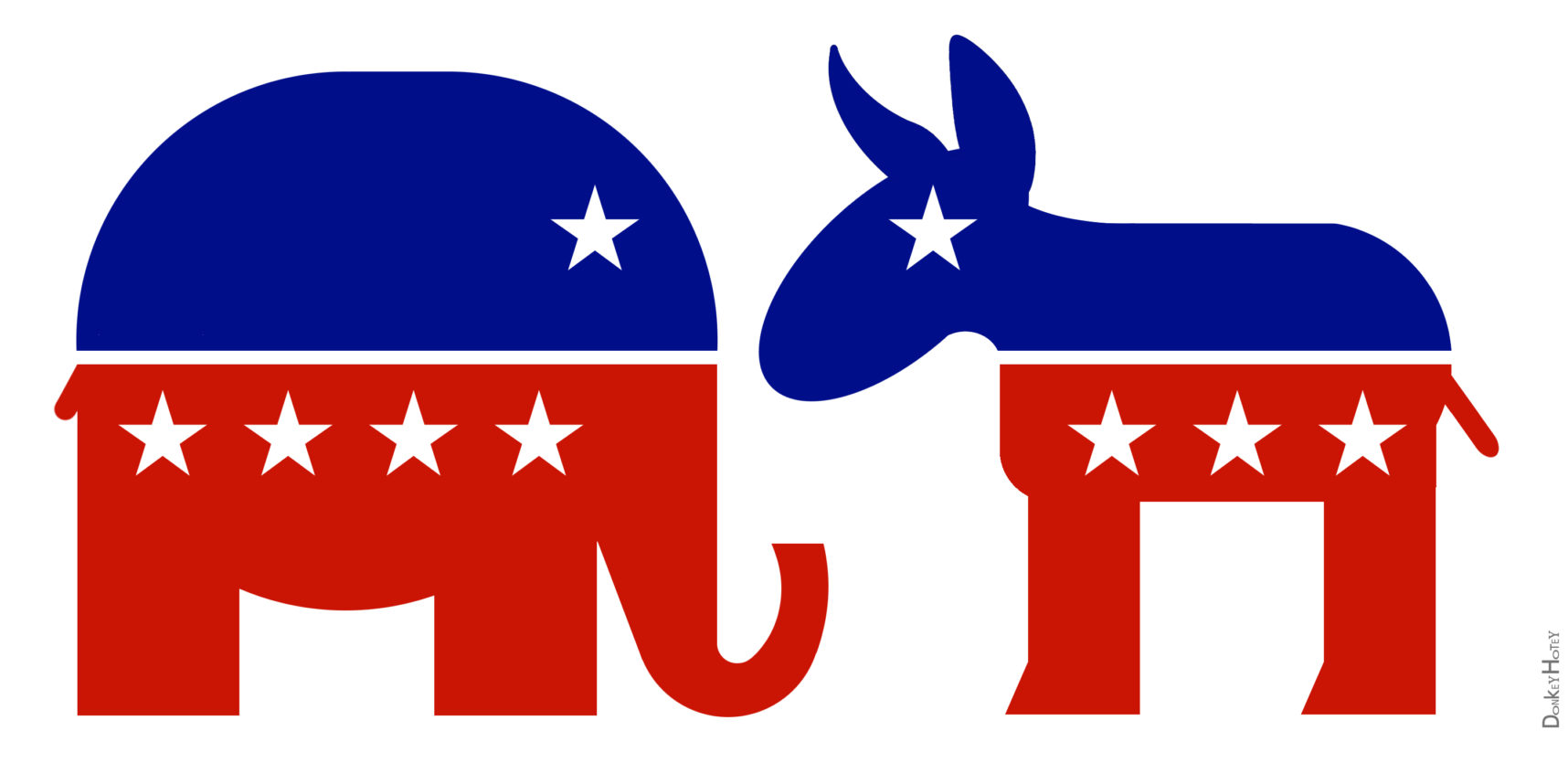
Every four years, in an attempt to maximize their share of the “Jewish vote,” the major political parties include language in their national platforms expressing support for Israel as America’s truest ally and only democracy in the Middle East. Often that expression contains a pledge to move the U.S embassy in Israel from Tel Aviv to Jerusalem.
The belief that the political and even national allegiance of many Jewish Americans is driven by devotion to Israel extends beyond party politicians to a sizable share of the U.S. public. A 2016 survey conducted by the Marttila Strategies polling firm indicates that although anti-Semitism has declined significantly in the United States over the past half-century, since at least the mid-1960s, about a third of Americans have believed the anti-Semitic dual loyalty canard that Jews are “more loyal to Israel than to America.”
To what extent do psychological ties to Israel actually shape the political beliefs and behavior of American Jews? If they do not motivate the Jewish community as much as is often believed, then what does?
Undeniably, a large majority of Jewish Americans have an affinity for Israel. A 2013 Pew Research survey indicated that an overwhelming (87%) said that “caring about Israel” is an important part of being Jewish. On a more demanding measure of affiliation, about 7 in 10 Jewish Americans (69%) said they are at least somewhat “emotionally attached” to Israel.
But, that’s not the whole story. In spite of their psychological connection to Israel, most Jews ´placed greater importance on other “Jewish” values—remembering the Holocaust (73%), leading an ethical and moral life (69%), working for justice and equality (56%), and being intellectually curious (49%)—than they did on caring about Israel (43%). Beyond this, when asked if being “strongly critical of Israel” is compatible with being Jewish, a large majority (89%) said that it is.
Moreover, to borrow from Borscht Belt comics’ assertions that “where there are two Jews, there are three opinions,” Jewish Americans are not of one mind about Israel. While it is true that a sizable majority have at least some emotional connection to Israel, the extent of that link varies by denomination, generation, and political party identification. The ties are strongest among the Orthodox, those 50 years old and above, and those who identify as Republicans. This split in the opinions of Jewish Americans toward Israel and other matters runs throughout the Pew study.
If allegiance to Israel and support of its current policies is not the primary determinant of the political beliefs and behavior of Jewish Americans, what is? Pew’s research suggests the crucial factors are the very things that shape the opinions and votes of most other Americans—their party identifications, their opinions on current political issues, and their perceptions of major political figures. Pew sums those up by saying that “Jews are among the most liberal and Democratic groups in the population.”
A large majority of Jewish Americans (70%) identified with or leaned to the Democratic  Party; this when 49% of the U.S general public claimed a Democratic attachment. More remarkable, nearly half of Jewish Americans (49%) said they were liberal and just 19% called themselves conservative. This was almost reverse the numbers for the general public, within which 38% said they were conservative and 19% liberal.
Party; this when 49% of the U.S general public claimed a Democratic attachment. More remarkable, nearly half of Jewish Americans (49%) said they were liberal and just 19% called themselves conservative. This was almost reverse the numbers for the general public, within which 38% said they were conservative and 19% liberal.
To confirm the trend, millenial Jews (18-29 year olds) were the most Democratic, liberal, and pro-Obama age cohort that Pew sampled. They are also the least emotionally connected to Israel and the most critical of its policies. Interestingly, Jewish millennials are as likely to have been to Israel as any other generation of Jews; suggesting that it isn’t simply indifference or ignorance that account for their disconnect from the Jewish state. Undoubtedly, the vigorous embrace of the unpopular Trump by Netanyahu compounded by Bibi’s public disdain for the ever-popular Obama may, inadvertently, be undoing the hard work that Birthright Israel undertakes when it provides free trips to Israel for the young.
These liberal and Democratic identifications were reflected in the opinions of Jewish Americans of all ages on major issues. A huge majority (82%) said that “homosexuality should be accepted by society.” A majority (54%) also preferred “a bigger government that provides more services” rather than a “smaller government that provides fewer services (38%). A majority of U.S. Jews approved of Barack Obama’s job performance (65%) at a point in his administration when 50% of the general public did.
Despite the assertions of Jewish conservatives and many Jewish organizations today, the positive perceptions of Obama carried over to his policies toward Israel and Iran even when those organizations and the Israeli government were highly critical of those actions. With the exception of the Orthodox, Jewish support for the president’s policies crossed all demographic and denominational lines. It also substantially exceeded that within the U.S. general public.
The liberal and Democratic proclivities of Jewish Americans continued in 2016 when a large majority (71%) voted for Hillary Clinton in 2016; only 23% voted for Donald Trump. The Jewish vote for Clinton was similar to what it had been for other Democrats since 1968 and may have exceeded that for Barack Obama in 2012.
The attitudes of Jews toward Donald Trump have not improved since his election. A March 2017 Gallup survey indicated that Trump’s job approval as president was only 31% among Jewish Americans, 11 percentage points below that of the electorate overall.
The data are clear. Jews remain disproportionately Democratic and highly negative about Trump. This makes it even more surprising that a number of important Jewish organizations remain reluctant to criticize the president. . Their likely rationale is that Trump will be supportive of Israel and that little good would be served by alienating a potential friend of that country, especially in light of Trump’s campaign promises to revoke the nuclear limitation treaty with Iran and move the U.S. embassy in Israel to Jerusalem.
But these leaders and organizations run the serious risk of misunderstanding and, indeed, alienating their own Jewish base on the unlikely chance (already disproven in large measure) that Trump will honor his hyperbolic campaign promises in his presidential policies. Given the high stakes, the low probability of success, and the president’s erratic behavior and elusive beliefs, it is a gamble better not taken.
*Mike Hais is an expert in market research having served for more than 22 years at Frank N. Magid Associates. He has a doctorate in political science specializing in American politics and political behavior. He is co-author with Morley Winograd of Millennial Makeover: MySpace, YouTube, and the Future of American Politics, Millennial Majority: How a New Coalition Is Remaking American Politics, and Millennial Momentum: How a New Generation is Remaking America. This op/ed was written in association with Community Advocates, Inc.





















 More news and opinions than at a Shabbat dinner, right in your inbox.
More news and opinions than at a Shabbat dinner, right in your inbox.